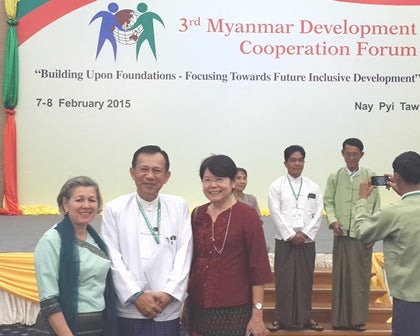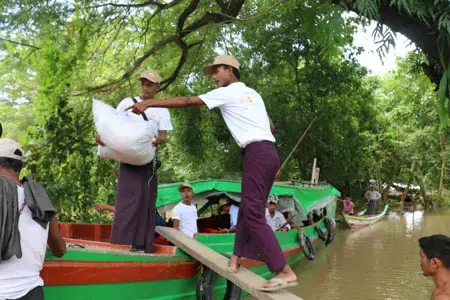Yangon_ UNFPA seized the moment at the third Myanmar Development Cooperation Forum on the 7th and 8th February in Nay Pyi Taw to stress the importance of advancing the development of the country’s first National Youth Policy. Government, members of parliament, as well as representatives from political parties, international development partners, representatives of international and local civil society, and the private sector gathered together at the meeting to review progress made since last year’s meeting and to discuss ways forward. UNFPA reaffirmed its commitment with all stakeholders to continue effective and inclusive development in Myanmar at the Forum, where this year’s theme was “Building Upon Foundations: Focusing Towards Future Inclusive Development”.
The establishment of a Youth Policy would be timely for Myanmar as part of the transition process which is occurring in the country. An estimated 30% of the population is aged between 10 and 24, and today’s youth will be the decision makers of 2030 - the year when the Post 2015 Development Agenda ends. A National Youth Policy is therefore imperative for ensuring the future and sustainable development of the country.
The impetus for the development of the National Youth Policy dates back to 2013, when UNFPA’s Executive Director Babatunde Osotimehin visited Myanmar to meet with the President, U Thein Sein, as well as with Daw Aung San Suu Kyi. He emphasised in both meetings the importance of implementing a comprehensive National Youth Policy. Such a policy is critical and an important factor for shaping development in Myanmar as it concerns both the current and future labour force of the country.





